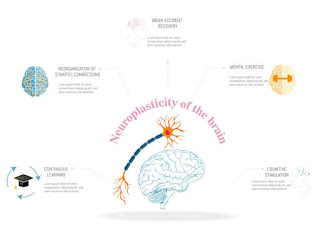Meditation and Brain Health: Rewiring Neural Pathways for Longevity
Cultivating a Resilient Mind: How Meditation Rewires the Brain for Lifelong Health
In recent years, the benefits of meditation have been increasingly backed by scientific research, revealing its profound impact on brain health. More than just a method for relaxation, meditation has the power to reshape our brain’s neural pathways, creating healthier thought patterns, reducing cognitive decline, and supporting brain longevity. These changes aren’t superficial—long-term meditation has been shown to alter the structure and function of key brain regions, including the hippocampus and prefrontal cortex, which are crucial for memory, decision-making, and emotional regulation. In this article, we will explore how meditation rewires the brain, enhances mental resilience, and supports healthy aging.
The Science of Meditation and Neuroplasticity
Meditation’s influence on the brain is rooted in the concept of neuroplasticity—the brain’s ability to reorganize itself by forming new neural connections throughout life. Neuroplasticity allows the brain to adapt to new experiences, learn new skills, and recover from injuries. While this adaptability is most robust during childhood, research shows that meditation can preserve and even enhance neuroplasticity well into adulthood and old age.
When practiced regularly, meditation acts as a kind of “mental exercise,” training the brain to process information more efficiently, respond calmly to stressors, and cultivate positive thought patterns. This makes it an invaluable tool not only for managing stress but also for fostering long-term cognitive health.
In particular, two meditation styles—mindfulness meditation and loving-kindness meditation—have been studied extensively for their effects on the brain. Each offers unique benefits that contribute to a resilient and healthy mind.
Mindfulness Meditation: Strengthening Memory and Emotional Resilience
Mindfulness meditation, a practice centered on bringing attention to the present moment without judgment, has become one of the most researched forms of meditation for its impact on brain health. By training the mind to stay present, mindfulness meditation strengthens the brain’s ability to focus, process information, and manage emotions.
How Mindfulness Changes the Brain
One of the key regions affected by mindfulness meditation is the prefrontal cortex, the area of the brain responsible for decision-making, attention, and self-control. Studies have shown that regular mindfulness practice increases gray matter density in the prefrontal cortex, enhancing cognitive functions such as focus and working memory. This improvement can help counteract the natural decline in cognitive abilities that often accompanies aging.
Additionally, mindfulness meditation has a significant impact on the hippocampus, a critical region for memory and learning. Chronic stress can shrink the hippocampus, leading to memory loss and cognitive decline. However, meditation has been shown to counteract this effect, increasing the volume of the hippocampus and supporting better memory retention. This makes mindfulness an effective practice for those looking to preserve cognitive function as they age.
For those new to mindfulness meditation, my article, Meditation for Mindfulness: Techniques That Work, provides a comprehensive guide to starting your practice, offering techniques that can be easily integrated into daily routines.
Emotional Regulation and Mindfulness
Mindfulness meditation also strengthens the brain’s capacity for emotional regulation. It enhances the function of the anterior cingulate cortex (ACC), a region involved in emotional processing and impulse control. This improvement helps individuals respond to stressors with greater calm and reduces the tendency to react emotionally to challenges.
By fostering greater self-awareness and emotional resilience, mindfulness meditation not only benefits cognitive health but also improves overall quality of life. This resilience becomes particularly valuable during times of stress, helping to prevent the negative effects of prolonged anxiety on the brain.
Loving-Kindness Meditation (Metta): Nurturing Compassion and Cognitive Longevity
Loving-kindness meditation, or Metta, is another powerful practice for brain health. It involves focusing on cultivating feelings of compassion, love, and kindness toward oneself and others. While it may sound simple, the effects of this practice on the brain are profound, especially when practiced consistently over time.
The Neuroscience of Loving-Kindness Meditation
Metta meditation has been shown to increase the activity in the brain’s empathy circuits, particularly the insula and the temporal parietal junction (TPJ). These areas are involved in emotional empathy and perspective-taking, allowing us to connect more deeply with others. Strengthening these regions through loving-kindness practice not only supports social connections but also enhances emotional intelligence—a key factor in maintaining mental well-being across all ages.
Moreover, Metta meditation has been found to reduce activity in the amygdala, the brain’s fear center. By calming this part of the brain, loving-kindness meditation can decrease chronic stress and anxiety, which are known to contribute to cognitive decline over time. Lowering amygdala activity reduces the brain’s reactivity to stress, allowing it to maintain a state of equilibrium even in challenging situations.
For a deeper dive into how Metta meditation can transform your mind and heart, explore my article, Metta: This Love and Kindness Meditation is a Radical Act of Love. It offers practical steps and insights into building a loving-kindness practice that nurtures both mental and emotional health.
Metta Meditation and Brain Longevity
Beyond emotional benefits, loving-kindness meditation also supports cognitive longevity. Research suggests that positive social interactions and feelings of compassion can increase levels of oxytocin, a hormone that supports social bonding and reduces stress. Higher oxytocin levels are associated with lower levels of inflammation and improved brain function, creating a protective effect against cognitive decline.
By practicing Metta meditation, individuals can cultivate a mindset of compassion and positivity, which has been linked to improved mental well-being and even increased life satisfaction. As we age, maintaining positive emotions and a sense of connection to others can be key to reducing the risk of conditions like depression and dementia, further extending the benefits of this practice.
Meditation for All Ages: Building a Brain for the Future
One of the remarkable aspects of meditation is its versatility across age groups. Whether you are in your twenties or your sixties, meditation offers specific benefits that support brain health and resilience.
- Young Adults and Students: For those in their early stages of life, meditation can enhance focus, improve academic performance, and build emotional intelligence. By training the brain to concentrate and reduce distractions, young adults can develop the cognitive flexibility needed for learning and problem-solving.
- Middle-Aged Adults: During midlife, when stress from work and family life may peak, meditation provides a buffer against anxiety and burnout. It helps middle-aged adults maintain a balanced perspective, reduce cortisol levels, and strengthen their ability to navigate life’s challenges with clarity.
- Older Adults: For older individuals, meditation becomes a tool for maintaining mental agility and preventing cognitive decline. By preserving the hippocampus and prefrontal cortex, meditation helps older adults retain memory, make sound decisions, and maintain emotional stability as they age.
Meditation’s ability to adapt to different stages of life makes it a lifelong companion for brain health, offering a way to keep the mind sharp, flexible, and compassionate.
Additional Resources for Expanding Your Practice
If you are interested in diving deeper into the connection between meditation and brain health, consider exploring these high-quality resources:
- “The Neuroscience of Meditation” – A detailed study published in Nature Reviews Neuroscience that explores the impact of various meditation practices on brain structure and function.
- “Altered Traits: Science Reveals How Meditation Changes Your Mind, Brain, and Body” by Daniel Goleman and Richard Davidson – This book provides an in-depth look at decades of meditation research and its implications for mental and physical health.
- Headspace – A popular meditation app that offers guided sessions focused on mindfulness, stress reduction, and sleep, helping users develop a consistent practice.
These resources offer a wealth of knowledge for those looking to deepen their understanding of meditation’s impact on the brain and how to integrate these practices into everyday life.
Rewiring the Mind for a Resilient Future
Meditation is more than a momentary escape from stress—it’s a transformative practice that rewires the brain for long-term health and resilience. By enhancing the function of the hippocampus, prefrontal cortex, and emotional regulation centers, meditation offers a path to greater focus, improved memory, and a balanced mind. Whether through mindfulness meditation or loving-kindness meditation, the benefits are profound and far-reaching.
By incorporating these practices into your daily routine, you can build a brain that thrives at every age, capable of adapting to life’s challenges with grace and clarity. Let meditation be your ally in the journey toward mental longevity, guiding you to a healthier, more resilient mind.









